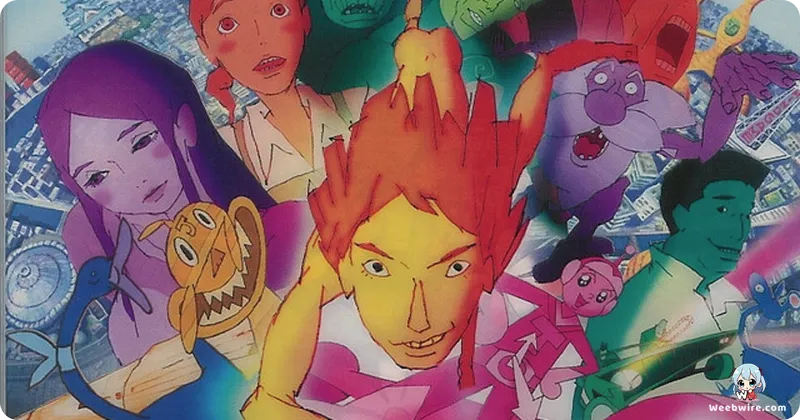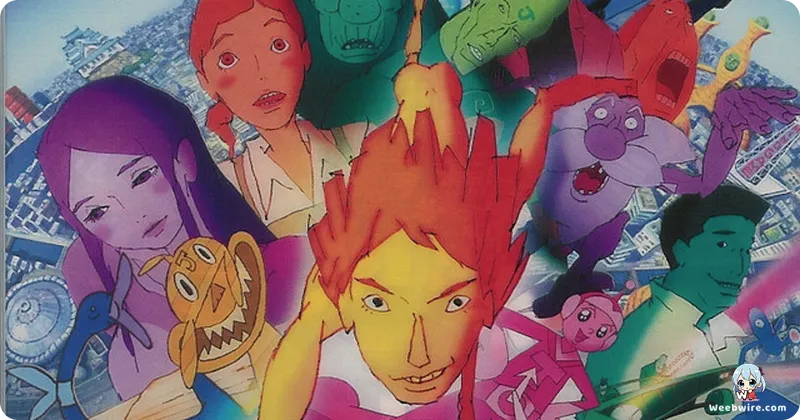Masaaki Yuasa's 'Mind Game': A Revolutionary Anime Masterpiece That Redefined Visual Storytelling

In the sprawling universe of anime, Masaaki Yuasa's 2004 directorial debut, Mind Game, stands as a truly revolutionary masterpiece. It defiantly redefines the very essence of the medium. Though not an immediate box office hit in Japan, this visually audacious film has since garnered a formidable global cult following. It is celebrated for its unbridled creativity and a narrative that fearlessly plunges into the surreal. More than a mere animated feature, Mind Game is a profound, kaleidoscopic exploration of life, death, and existence, conveyed through a visual language unlike anything seen before.
A Tapestry of Animation Techniques
A hallmark of its innovation is the astonishing array of animation techniques meticulously woven throughout. Yuasa and Studio 4°C masterfully blend traditional 2D, rotoscoping, live-action footage, 3D CGI, and even raw sketches. This eclectic tapestry is not just stylistic; it deeply serves the narrative, mirroring protagonist Nishi's fragmented perception of reality and his chaotic journey through various psychological states. This fluid, improvisational approach was unprecedented, cementing Mind Game as a pivotal work in visual storytelling and a testament to Yuasa's boundless artistic vision.

Navigating a Non-Linear Dreamscape
The film's non-linear, stream-of-consciousness narrative further distinguishes it. Viewers are immediately immersed in Nishi's bizarre afterlife, following his sudden death and encounter with a shape-shifting deity. The story spirals into a fantastical odyssey inside a colossal whale, a metaphorical purgatory compelling characters to confront past regrets and unfulfilled desires. Yuasa’s directorial brilliance maintains coherence amidst this chaos, guiding audiences through a dreamlike logic that is both absurd and deeply resonant.
Mind Game holds the significant distinction of being Masaaki Yuasa's first full-length feature as a director. This project granted him unprecedented creative autonomy. The nearly two-year production was marked by an unwavering experimental spirit, allowing for a film that truly broke the mold, unburdened by commercial expectations. This dedication to a singular vision is palpable in every frame, from meticulous details to audaciously exaggerated character designs.
Profound Philosophical Echoes
Beyond its visual and narrative ingenuity, Mind Game is imbued with profound philosophical depth. It is a powerful meditation on what it means to truly live, with Nishi's journey serving as a metaphor for shedding societal expectations and embracing one's authentic self. The film subtly questions the mundane, urging viewers to seize every moment and live without regret.
Perhaps most surprising is its initial lukewarm reception in Japan, sharply contrasted with its explosive international success. Despite struggling domestically, it quickly gained traction overseas, earning critical acclaim and prestigious awards like the Ofuji Noburo Award. This dichotomy highlights how groundbreaking art often needs a global stage to be fully appreciated, solidifying its status as a cult classic whose enduring legacy lies in its influence on animation and its ability to inspire and challenge viewers with boundless imagination.
Credits
Mind Game
Author
Robin Nishi
Cover Art
Masaaki Yuasa
Studio
Studio 4°C
Publisher
Enterbrain
Producers





